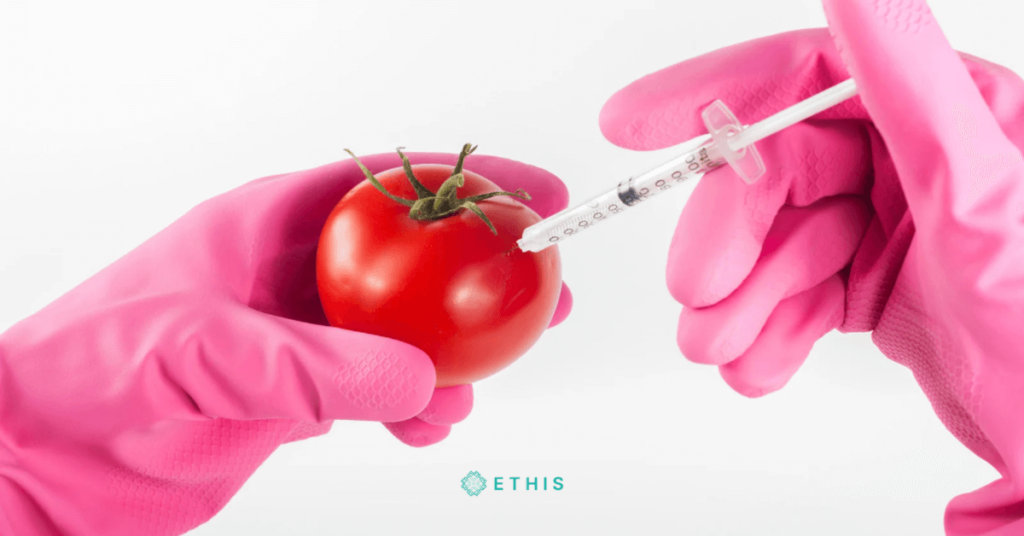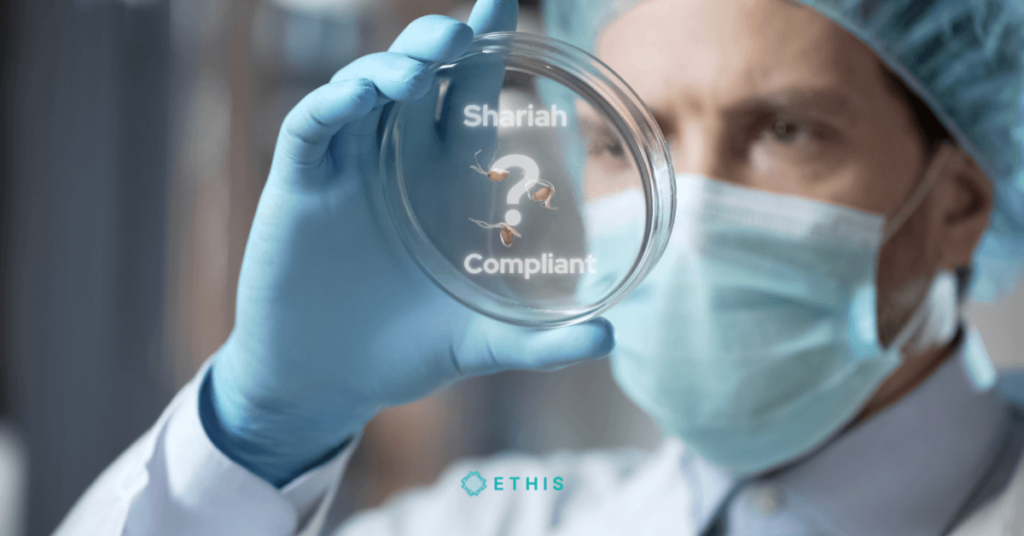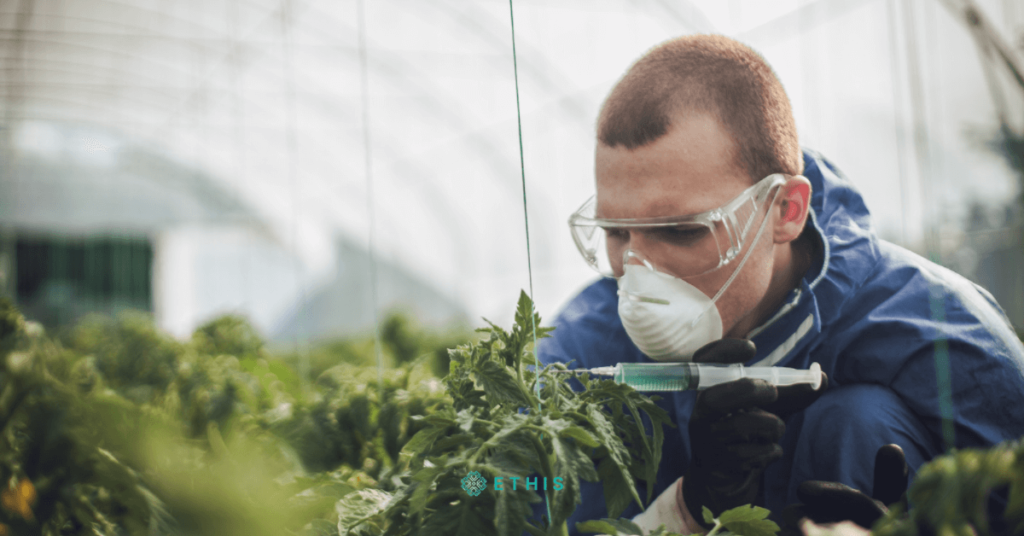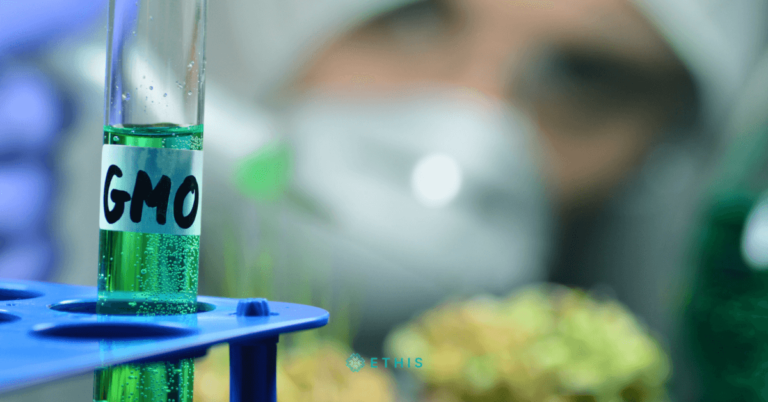
By Asiff Hussein
As we all know, investments in the Islamic banking and finance industry are subject to rules governing their permissibility or not. Many of these rules are fairly straightforward.
For example, anything that has been flatly declared to be prohibited in the Qur’an, Hadith and the consensus of the classical scholars of Islam as haram (Prohibited) is a no-go area.
Ethis does not provide services to businesses taking part in any form of haram matters. This covers interest payments, pork and pig-derived products, alcohol, pornography and vulgar entertainment in general. Gambling or speculative activity that could create wealth out of chance rather than real production (maysir) and investments that involve uncertainty or sale of what is not yet present or produced (gharar) are also clearly prohibited and consensus agreed upon.
However, there is one major area where due attention has not been paid to, but certainly needs addressing, and that is Genetically Modified Organisms (GMOs) which involves gene splicing and transferring the genes of one organism to another to confer certain desired traits such as higher yield, enhanced growth, longer shelf life or pest resistance.
Although it might seem innocuous enough on the face of it, it raises serious bioethical concerns especially for Muslims and has far-reaching implications for people’s health and the environment.
The reason why GMOs have not gained much attention in the Islamic banking and finance sector is of course because it is a modern development spearheaded by certain Genentech firms like Monsanto. As such, it did not capture the attention of our classical scholars who lived centuries ago who could not even anticipate such developments back then.
However these developments are very real today, and certainly need the attention of modern-day Islamic scholars involved in laying down guidelines for investments in Islamic banking and finance.
The inferences made in this article about the shariah aspects of this issue should therefore be taken only as a working basis on how to approach the problem, and should not be regarded as conclusive until consensus is reached by competent scholars in the area of Islamic banking and finance.
Genetically-modified products


Genetically-engineered or genetically-modified lines, very often crops and to lesser extent livestock, are ostensibly done to promote food security by giving a higher yield in the case of crops and faster growth in the case of food animals.
However, it could also be used for several other applications like pest resistance, the longer shelf life of products or even for simple aesthetic purposes.
Take the case of Bt Corn, an artificially manipulated variety of maize that has incorporated the gene of the microbe Bacillus Thuringiensis to make it resistant to the corn borer, a pest that can harm the crop. The Bt protein expresses itself throughout such a plant. When an insect consumes even a minute quantity of it, the protein gets activated in its gut to form a toxin that creates holes in its gut walls so that it eventually starves to death. The objective is of course to save the crop, though there are other implications as we shall shortly see.
Arguably more controversial are transgenic food animals based on recombinant DNA technology where gene transfer seeks to alter the inherent genetic makeup of animals to enhance growth or other desirable traits. One noteworthy example is the genetically engineered AquaAdvantage Salmon, a fast-growing salmon which like Bt Corn has been commercialized. This line was produced by microinjecting fertilized Atlantic salmon eggs with an rDNA construct made up of the growth hormone gene of Chinook salmon and a promoter taken from an antifreeze gene of the Ocean Pout.
Other transgenic animals have not been commercialised as such thus far, though the potential remains. Transgenic mice and transgenic pigs have been produced for biomedical research notwithstanding the immense suffering these animals undergo in vivisections and animal experimentation in the name of science.
Although commercialisation of livestock animals has not made much progress due to public wariness, government regulations and delayed pre-market regulatory approval among other things, the potential remains as whole genomes of livestock such as bovines have been sequenced, making it easier for gene transfer and gene editing where certain genes thought to inhibit certain biological processes are knocked out.
Gene editing has already created myostatin knockout livestock such as cattle and goats with increased lean muscle yield and FGF5 sheep with increased wool yield.
However, the high cost of producing transgenic animals remains a major problem for livestock engineers which effectively prevents mass production and commercialisation. Nevertheless, these drawbacks are being gradually addressed as we speak.
Can GMOs be deemed shariah-compliant?


This is a question that should be addressed very seriously by the industry and Islamic scholarship in general. Although the subject of genetic engineering has not been directly addressed in the Qur’an, some passages imply that changing the nature created by God Almighty is a Satanic act. Still, other verses speak of upholding the balance of nature which by implication means nature as we know it.
One may even be tempted to see in the Qur’an, a very pertinent passage revealed more than 1400 years ago where we are told that Satan, the arch-foe of mankind, had vowed to induce man to change the nature created by God.
In this particular passage God tells us that after He created Man in the form of Adam, Satan challenged Him:
I (Satan) will take of your (God’s) servants a portion marked off. I will mislead them and I will create in them false desires. I will order them to slit the ears of cattle and to change the (fair) nature created by God. (Surah An-Nisa:119)
Here there is a clear implication that changing the fair nature created by God in His wisdom is not to be pursued by man as it is ultimately due to satanic influences. In other words, Satan seeks to undermine our trust in God and our trust in the wisdom of His creation by stirring us to question the perfection of such creation. In this manner, he seeks to prod us to change the nature created by God in His wisdom and the process seeks to undermine our faith in Him.
Yet another relevant passage from the Qur’an tells us:
No change (let there be) in the Work (wrought) by God (Al Rum:30)
This passage clearly warns us that we humans have no right to change nature. In this sense, Islam differs considerably from the Judeo-Christian worldview that regards creation as fully subject to a man who could do with it anything he pleases.
Rather the Islamic worldview is based on the nation of trusteeship of man over the rest of creation and preserving nature as it stands. Thus Man in his role as khalifa or Custodian of the Earth has a special mission in safeguarding nature.
As the Prophet Muhammad (Peace Be Upon Him) put it:
The world is green and beautiful, and God has appointed you as His stewards over it. (Sahih Muslim).



What this hadith tells us is that we are God’s vicegerents on earth and that this world has been given to us on trust since it is clearly stated that we are “stewards” or “custodians” over it, not its masters. What is however lost among many of us is the first line of this hadith that tells us clearly that “The world is green and beautiful.”
So it is clear that the world is perfect, which implies that the nature in it, with its balance and equilibrium, is perfect and has no flaw.
To attempt to change nature may therefore go against the Divine Law. The man then must maintain the delicate balance of nature and the equilibrium with which it operates so that the proper and orderly functioning of the natural order is maintained till the end of time.
Detractors would of course argue that what is not specified as haram or prohibited in the Qur’an is halal or allowed. This argument of course indulges in a binary definition of what is halal and haram and goes no further.
For example, they point out that there is nothing in Islam to say that there is a prohibition against consuming genetically modified crops. This is, of course, a rather superficial argument because we know that at the time the Qur’an was revealed, genetically-engineered organisms, whether crops or food animals, were not known.
As we have seen above, it is implied in the Quran and perhaps even presupposed in the hadith. We may thus reasonably suppose that the Omniscient Divine Wisdom took cognizance of these developments that could arise in future because as Muslims we know everything is within the Ken of God.
Detractors also argue that the objective of such genetic engineering or manipulation is not intended to cause evil or mischief, but rather meant for the good of man by ensuring plentiful harvests and food security among other things.
Although these arguments are questionable even from a rational point of view, let us again refer the matter to the Shariah which is very important to us as Muslims. As we know, what determines whether something is halal or haram is not the outcome, but the process.
For example, a halal slaughtered chicken and an unislamically slaughtered chicken without mentioning Allah’s name and following the prescribed dhabh manner of slaughtering might look and taste the same, but the process by which it has been obtained are very different. This is what distinguishes the halal from the haram- the process.
So it may be validly argued how can we abandon the due process of natural developments ordained by God in favour of artificial manipulation regardless of the outcome?
These same detractors might also argue that artificial manipulation of crops and livestock has been going on for ages since the objective of selective breeding is this – selecting plants and animals with certain desired traits and enhancing such traits by selectively breeding them, in other words pairing them with similarly endowed organisms and ensuring inbreeding over several generations to enhance these traits further.
But here we need to remember that even though induced by man, all this activity takes place within nature. There is no gene splicing or artificial introduction of genes from other species or manipulation of organisms at the genetic level.
However is there any truth in GMOs being completely safe for the environment or our health? Let us see how far this is true because this too has a bearing on the Maqasid Al Shariah or Objectives of Shariah which is very much concerned about the environment and health among other things.
Environmental concerns


There are serious environmental implications of using GMO’s including transgenic crops and livestock. To give one example, take the case of genetically modified maize which has incorporated the gene of the Bacillus Thuringiensis to make it resistant to the corn borer.
However, it has been established that such corn, when eaten by the larvae of the Monarch Butterfly, killed nearly half and stunted the rest. This is very unfortunate since the Monarch Butterfly is the natural protector of the corn as it feeds on pests injurious to the corn plant.
But what the genetically-engineered Bt corn does is kill both the pest and its natural predator, the Monarch butterfly. The pests could evolve strains resistant to the corn within a couple of decades or less, while the butterfly which could perennially control the pest would have been wiped out, posing a threat not only to our food security but also to the larger environment.
Transgenic food animals pose no less an environmental threat which is why there are so many rules and regulations to contain them in their habitats and prevent them from transferring their altered genes to the natural animals by cross-breeding, thus contaminating them with altered genetic material.
The fast-growing Agua Advantage salmon which has been commercialised in North America is a case in point. Interestingly selective breeding of farmed, fast-growing natural salmon promises very high yields and could be improved on. So why may it be asked are transgenic animals being used for purposes of food?
Health Concerns
There are numerous health concerns of GMOs for which the evidence keeps on mounting. Transferring genes from one species to another can result in genetic instability and resultant mutations. It can alter nutritional values and enhance the toxicity in certain products by boosting the natural toxins some foods have. It also poses the threat of creating potential toxins due to interference with the natural processes of these organisms.
Besides acquiring such toxicity due to genetic manipulation, some toxins have been deliberately introduced by genetic engineers. Take genetically modified corn which now contains enhanced Bt toxins also called ‘supertoxins’. These have over the years been conferred increased toxicity and incorporated into the corn to make them more effective against pests.
How far are such GM foods safe? GM corn approved for consumption in countries like the US has been found to cause liver, kidney and other organ damage when fed to rats. This is very relevant as these are the two major detoxification organs of the body and suggests that the Bt toxins in it could have adverse health impacts on humans too.
GM animal feed has been blamed for birth defects in young, smaller litters, less milk production and in general higher mortality due to conditions like gastric ulcers and fatal diarrhoea. Thus long term effects on humans need to be ascertained before it is actually declared safe. This is why many countries except those more concerned about productivity – like the US, Canada and India- still do not consider such foods safe for human consumption.
In those countries that allow it, evidence is adding up to back its harmful effects on humans as well. But toxin from GM food crops has been found in the blood of pregnant women and the umbilical blood of their newborns. Such toxins can enter the child’s developing brain and cause cognitive disorders since the blood-brain barrier is not developed at that stage.
GM foods can also potentially alter the behaviour of beneficial gut bacteria in the digestive tract and even inhibit the growth of such bacteria. Worse still, it can trigger mutations in otherwise harmless microorganisms making them potential pathogens. We also know that certain foods can activate or suppress gene expression when it comes to, say inhibiting cancer growth which is what for example antioxidants in natural foods do. What the long-term effects of GM foods will be on anti-oxidant production thus needs to be ascertained before it is declared safe or wholesome. Thus the implications of adopting GM foods or other products are far-reaching and contentious.
In conclusion, all that can be said is that there are compelling reasons to include GMOs under a ban covering Islamically prohibited investments. However, this is up to the industry and the scholars laying down the rules to agree on.
Suffice it to say that this is an urgent area that needs addressing from a Shariah point of view as well as practical concerns. The sooner this is taken in hand the better. What is known thus far is that the halal status of genetically modified organisms is still pending and further extensive investigations and research are needed before declaring it Halal much like the case of cryptocurrency.





Top Posts
Islamic P2P Crowdfunding Explained
Halal Money Matters: How Muslims Can Balance Deen and Dunya with Smart Islamic Finance
Halal Investments for Singapore Muslims? It’s time for a shake-up in the Islamic Investments scene.
Smart investment for making Halal money
3 Reasons Why Property Crowdfunding is the Smart Investment for You